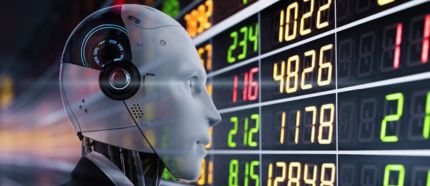The Revolution of Automated Forex Brokers
On the timeline of events, forex trading has steadily evolved from its orthodox form to a more computerized and automated process. Forex brokers’ development has been one of the most significant factors during this evolution, as they progressed through technological revolutions to meet the growing demands of their clients. Automation, perhaps, is the primary factor affecting how the forex business operates nowadays, changing the interaction equations between brokers, traders, and the market.
This article explores how forex brokers have transformed over time, the impact of automation tools such as forex robots, and how these developments are reshaping the industry.
What Are Forex Brokers in General Definitions?
Initially, forex brokers operated as intermediaries who manually facilitated trades for clients. This traditional process, while functional, had significant limitations.
- Manual Trading Process: Clients executed trades over the phone or in person, relying on limited information provided by brokers.
- Limited Market Access: Only large corporations or high-net-worth individuals could access forex trading.
- High Costs: Manual operations incurred significant commissions and fees, making trading expensive for participants.
Difficulties of Traditional Forex Trading
The conventional methods of forex trading were plagued by inefficiencies:
- Laborious Transactions: Manual trading caused delays, often leading to missed opportunities.
- Minimal Market Exposure: Traders had limited access to real-time market insights.
- Elevated Costs: High commissions and fees rendered forex trading less appealing to smaller participants.
The Digital Revolution: Forex Trading in the Online Era
The advent of the internet brought transformative changes to forex trading. Brokers moved online, enhancing accessibility, transparency, and efficiency.
Key Advancements in Online Forex Trading
- Internet-Based Services:
- Instant market access for retail traders.
- Immediate availability of market data and analysis.
- Reduced operational costs, lowering commissions and spreads.
- MetaTrader Platforms: Platforms like MT4 and MT5 offered advanced tools, including charting, technical indicators, and algorithmic trading capabilities.
- Leverage and Margin Trading: Retail traders gained the ability to control large positions with minimal investments.
The Role of Automation in Forex Trading
Automation has revolutionized forex trading by improving speed, accuracy, and scalability. Automated trading platforms and tools are now essential for modern brokers and traders alike.
Benefits of Automation
- Increased Efficiency: Automation reduces slippage and executes trades in milliseconds, maximizing profitability.
- 24/5 Market Monitoring: Automated systems operate continuously, ensuring trades are not missed.
- Enhanced Risk Control: Automated systems allow brokers to manage liquidity and hedging more effectively.
Forex Robots: A Key Automation Tool
Forex robots, also known as expert advisors, are programmable tools that automate trading based on pre-defined algorithms.
How Forex Robots Work
- Data Integration: A forex robot analyzes market data, trends, and indicators.
- Algorithmic Execution: They open, close, or adjust trades based on pre-set conditions without human involvement.
- Backtesting: Robots test trading strategies on historical data to evaluate their success.
Advantages of Forex Robots
- Speed and Precision: Execute trades faster and more accurately than manual trading.
- Emotion-Free Trading: Eliminate emotional biases, ensuring consistent strategy execution.
- Multi-Market Monitoring: Monitor and trade multiple currency pairs simultaneously.
Limitations of Forex Robots
- Algorithm Dependence: Poorly designed robots can result in significant losses.
- Unpredictable Events: Robots may struggle to adapt to unprecedented market events.
- Maintenance Needs: Algorithms require regular updates to stay effective in changing market conditions.
The Impact of Automation on Broker-Trader Relationships
Automation has redefined the relationship between brokers and traders, fostering greater transparency and cooperation.
Brokers’ Evolving Role
- Technology Providers: Brokers now offer advanced platforms and APIs for automated trading.
- Educational Resources: Brokers train clients on automated systems and trading strategies.
- Customer Support: Despite automation, human support remains vital for technical assistance and market updates.
Traders’ Expectations
- User-Friendly Platforms: Demand for simple interfaces that mask trading complexities.
- Advanced Analytics: Access to AI-powered analytics and sophisticated trading tools.
- Customizable Solutions: Traders seek platforms that cater to their specific needs.
The Future of Forex Brokers in Automation
Automation continues to drive the evolution of forex brokers, necessitating adaptation to stay competitive.
Emerging Technologies
- Artificial Intelligence (AI):
- Predictive analytics for better trading strategies.
- AI-powered forex robots that adapt to market changes.
- Blockchain Technology:
- Enhanced transparency with immutable transaction records.
- Decentralized trading for improved security and speed.
- Personalized Automation:
- Forex robots tailored to individual trading preferences.
- AI mentorship for step-by-step trading guidance.
Conclusion
The evolution of forex brokers mirrors the technological advancements shaping the forex market. From manual processes to automated systems, brokers have adapted to provide better tools, resources, and support for traders. Forex robots have emerged as a dominant force in automation, offering speed, accuracy, and emotion-free trading. However, their limitations highlight the importance of human oversight and continual algorithm refinement.
As the industry moves forward, a harmonious blend of human expertise and machine precision will define the future of forex trading, ensuring brokers remain indispensable in achieving financial goals.

